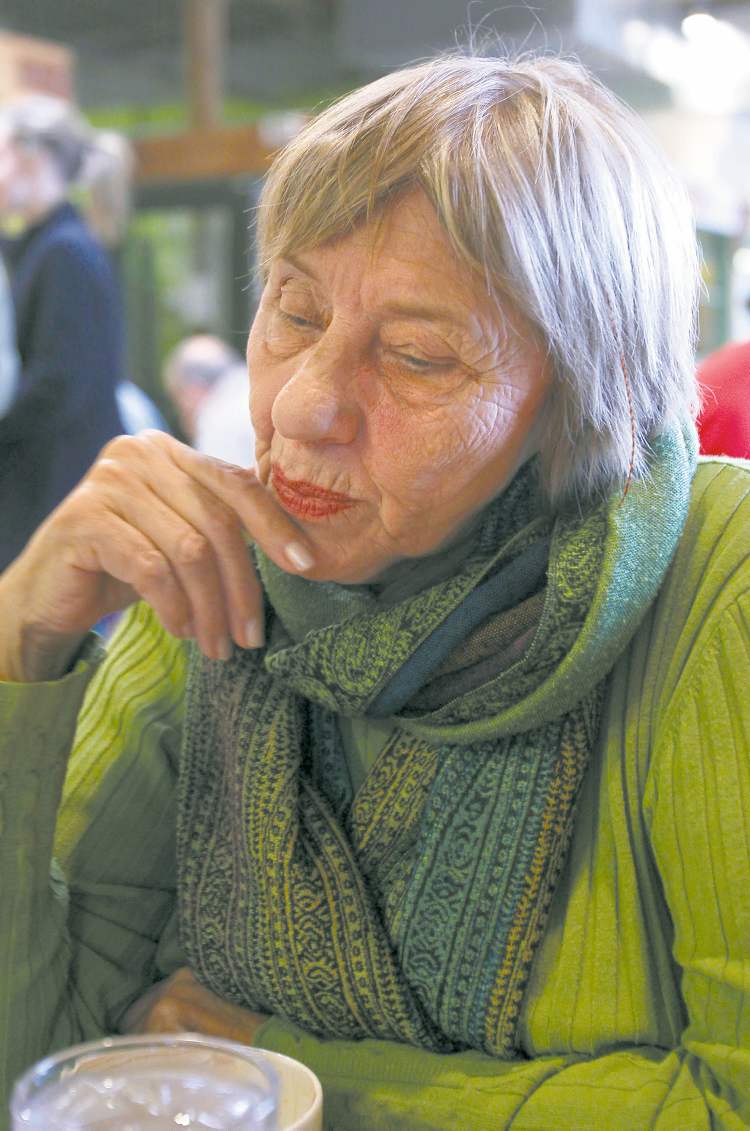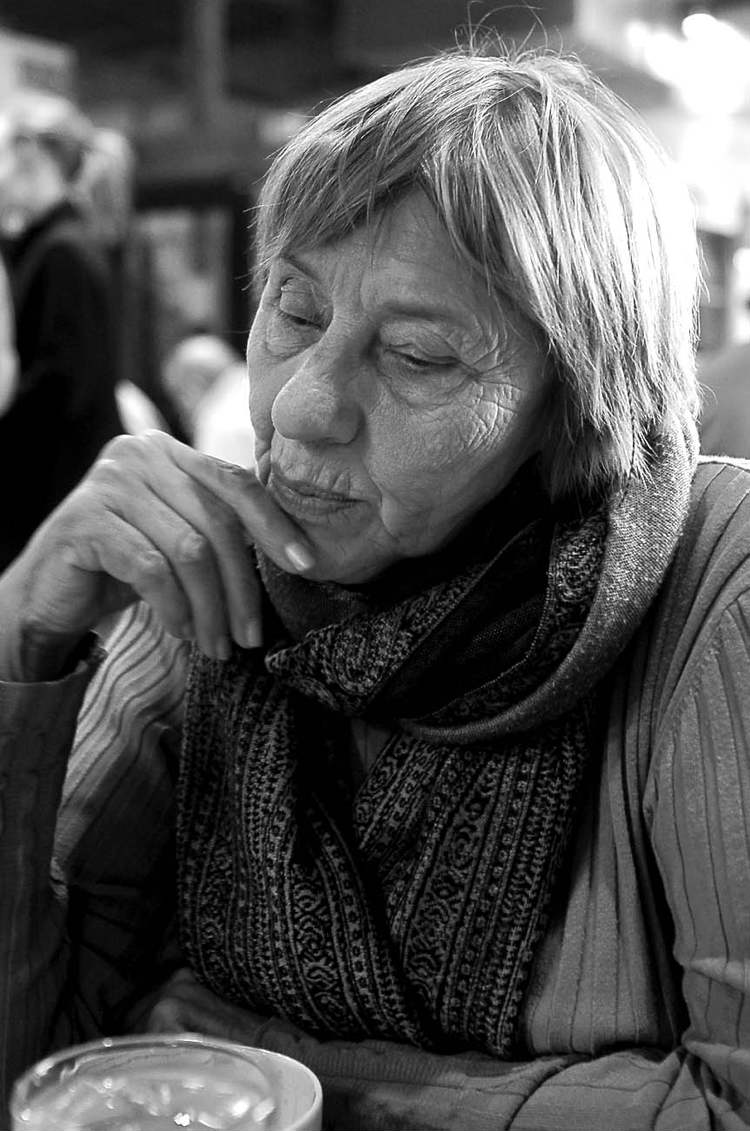‘Bad parent? No… an imperfect one’
Her son killed 14 women. Her daughter committed suicide. Now Monique Lepine is spreading a message of healing and forgiveness
Advertisement
Read this article for free:
or
Already have an account? Log in here »
To continue reading, please subscribe:
Monthly Digital Subscription
$1 per week for 24 weeks*
- Enjoy unlimited reading on winnipegfreepress.com
- Read the E-Edition, our digital replica newspaper
- Access News Break, our award-winning app
- Play interactive puzzles
*Billed as $4.00 plus GST every four weeks. After 24 weeks, price increases to the regular rate of $19.00 plus GST every four weeks. Offer available to new and qualified returning subscribers only. Cancel any time.
Monthly Digital Subscription
$4.75/week*
- Enjoy unlimited reading on winnipegfreepress.com
- Read the E-Edition, our digital replica newspaper
- Access News Break, our award-winning app
- Play interactive puzzles
*Billed as $19 plus GST every four weeks. Cancel any time.
To continue reading, please subscribe:
Add Winnipeg Free Press access to your Brandon Sun subscription for only
$1 for the first 4 weeks*
*$1 will be added to your next bill. After your 4 weeks access is complete your rate will increase by $0.00 a X percent off the regular rate.
Read unlimited articles for free today:
or
Already have an account? Log in here »
Hey there, time traveller!
This article was published 20/10/2012 (4713 days ago), so information in it may no longer be current.
Both of Monique Lepine’s children died by their own hand.
Marc Lepine was the first. On December 6, 1989, he walked into Montreal’s École Polytechnique, separated the male engineering students from the female, and opened fire. Lepine killed 14 women and himself.
After Marc died, his mother found his suicide note. Her first instinct, which she followed, was to use a red pen to correct the errors.

“They had a good education. Putting the accents in the right places in the French, that was important,” she says casually over a Friday-morning latte at Stella’s.
“That’s my bad habit,” she shrugs. Lepine likes things to be done right. She’s unconcerned how the story makes her sound.
Nadia Gharbi, Marc’s sister, died of a deliberate drug overdose seven years later, completing a downward spiral that began early — perhaps when she was placed in a nursery for the first three months after her birth, cared for full-time by strangers while her mother recovered from the complicated delivery. Or maybe it was later, in one of the three homes where the siblings lived while their single mother worked. She’d see them on weekends. Or later still, when Nadia was 14 and her mother, despairing of her bad friends, drug use and wild behaviour, put her into foster care for four years.
Monique Lepine does not believe she was a bad parent. The diminutive 74-year-old, stylishly dressed and smiling easily, tells her side of the Marc Lepine story. In it, she is a victim too, first of her ex-husband’s brutality, then of a society that did not support the needs of single mothers in the 1970s. Finally, she says, she was one of Marc’s victims, too.
“A bad parent? No, perhaps a little over-protective,” she says. “I was not always there. Because I had to work. Because my husband did not pay support. I don’t feel I am a bad parent. I feel I am an imperfect one.”
She is sweet and likable, this senior from Quebec, relaying the story she first told in her 2008 memoir, Aftermath. The book is the story of her life and that of her children before and after the Montreal massacre.
Lepine is in Manitoba this weekend to address two church groups, one in Steinbach Friday night and the second at Eastview Community Church tonight at 7 p.m. Proceeds from her talks, called Victim or Victorious, will go to Steinbach’s Eden Foundation for mental-health recovery.
She says she receives a little money for her speaking engagements, but often appears for just her travel expenses. Her memoir, a complete sellout in French and nearly one in English, earned her very little, she claims.
None of the proceeds went to the families of the victims.
Both Lepine and her memoir are riddled with contradictions. Some of what she says seems so callous I find myself hoping it’s a function of her slightly imperfect English. How else do you explain her nonchalant account of taking her dead daughter’s belongings, putting them in garbage bags and throwing them in the trash?

Lepine was raised Catholic and spent a year as a nun. When she left the church, she went wild. She had three abortions before she married and became pregnant with Marc. During the years after her divorce, she admits she had frequent affairs. Today, she shrugs and says her behaviour reflected the times. In Aftermath, she wonders what impact the parade of men through her bedroom had on young Marc.
She says she loved her children when they were little, but burned nearly all their childhood photos after Nadia’s suicide. It was necessary, she says. She wants to remember Marc at nine or 10. He was such a sweet little boy, she says.
Lepine says there were no signs her son was mentally ill. That’s belied by recollections in her book. When he was 12, Marc dug a grave “by the light of the moon” and put his sister’s photo and name on it. A few months later, Monique Lepine’s beloved cat vanished.
“He did away with my cat in order to hurt me,” she writes.
For 17 years, Lepine refused to grant interviews or admit she was the infamous killer’s mother. She stepped forward after the 2006 mass shooting at Dawson College in Montreal.
“I was the first mother of this sort,” she says. “I was praying for 17 years. It took another murder for me to find the courage.
“This is my mission, to help these collateral victims, the parents of the killers, their families. We didn’t get any help. The parents of the victims, the young girls, they got help.”
Lepine says she was born again at age 42, before her son’s rampage. Her faith in God helped her endure the death of her children and the terrible legacy of her son. She talks to strangers about the need to heal their hearts, to forgive and be forgiven. Lepine wrote her book and went public because she hoped to stop other men from killing.
She met the parents of one of Lepine’s victims. They don’t blame her, she says. And she doesn’t blame herself. This cheery pensioner with the chic scarf and the easy smile says she did nothing wrong.

The evil belonged to Marc Lepine the man, not the cheery nine-year-old son she chooses to remember. She wasn’t a bad parent, just an imperfect one.
lindor.reynolds@freepress.mb.ca
Excerpts from Aftermath
“Over the years I have struggled to understand what could have led Marc to commit such a monstrous act toward those young women. Perhaps he compared them to me because they had chosen to make their way in a decidedly male world just as I had done. Although he never said so, I am certain Marc was angry with me for the way I lived my life.”
“In my mind, Marc Lepine, the Polytechnique killer, was still alive, pursuing me along the tortured pathways of my mind. The creature that inhabited my hallucinations no longer bore the slightest resemblance to the person I had brought into this world. I became convinced that the only way to start living again was to get him out of my head by erasing his name and removing all trace of his existence.”
“No matter how much I strove for it, I was unable to attain inner peace, or shake off my guilt. I had let my daughter die of an overdose. My son had committed a monstrous criminal act. He had violated one of my most fundamental beliefs — that all human life is sacred — and I had done nothing.”

